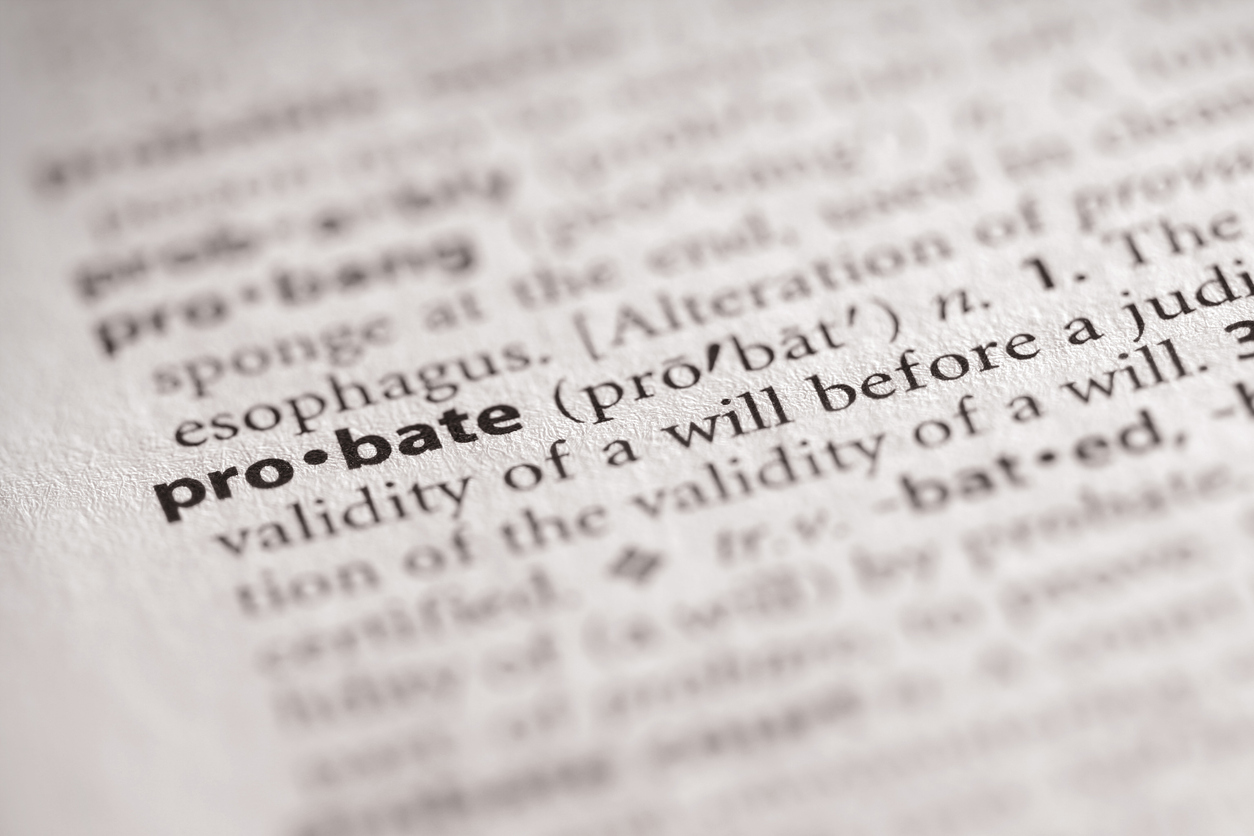What Is Probate and When Is It Required?

If you are an executor of an estate or are named in a will as a beneficiary, you may be wondering, “What is probate?” Probate is the legal process of being appointed by the Court as the estate trustee of a deceased person’s estate. If there is no will, the estate will be distributed according to the provincial laws, and someone will most likely have to make a probate application “without a will”.
When is Probate Required?
The value and nature of the assets owned by the deceased will determine if probate is required. Common assets they may require probate include real estate, high value bank accounts, high-value non-registered investment accounts and registered accounts without a designated beneficiary.
If the value of the estate is below $150,000 then an application for a Small Estate Certificate can be made.
Probate is almost always required if the deceased dies without a will.
What is Needed for a Probate Application?
Applications to the Court for appointment as estate trustee must include:
- The original will (if applicable)
- The death certificate (original or certified true copy)
- A statement of value of the estate assets at the time of death
- The properly completed Application, Affidavit of Service (or Lawyer’s Certificate of Service), and Draft Certificate of Appointment of Estate Trustee court forms.
The application must also be accompanied by payment of the Estate Administration Tax. The tax totals approximately 1.5% of the total value of the estate on the date of death. The payment of the tax can be deferred if the estate does not have any liquid assets.
Probate applications when there is no will are more complicated, lengthy, and costly to prepare. There are many additional requirements, which include needing most of the beneficiaries of the estate to consent to the appointment of the trustee. Additional evidence in the form of supporting affidavits will also need to be submitted to the Court. This evidence outlines the applicant’s knowledge of deceased’s financial affairs and explains why the proposed trustee is the best person for the role. An insurance bond may also be required to ensure that the estate is properly administered.
Applying for Probate
When the application is ready, it is filed with the provincial estate court in the jurisdiction the deceased resided in before their death. A copy of the application and the will or part of the will (if any) must be served on all interested parties before the application documents are submitted to the Court.
If there are no objections, the Court will issue the Certificate and any accompanying Order appointing the estate trustee. At this time, the estate trustee’s authority is confirmed, and they can begin gathering the estate assets. It is also advisable for the estate trustee to advertise a notice to creditors to ensure that all debts of the deceased are paid as part of the proper administration of the estate.
Reducing Estate Administration Tax
Estate Administrative Tax is calculated upon the value of the assets that were owned by the deceased person at the time of death. The value of jointly owned assets, such as a home or a bank account, will not need to be included in calculating the tax because these assets pass to the surviving owner through rights of survivorship. Other assets – such as life insurance policies, pension benefits and registered accounts that specify a beneficiary, are also not subject to the tax. Gifting assets before death will also reduce estate administration tax.
Owners of private businesses should have multiple wills to split the estate administration of the corporate assets and personal assets and prevent the value of the private shares being subject to Estate Administrative Tax.
Conclusion
Probate can be a complex legal process. With a basic understanding of what probate is and when it’s required, you can navigate through the process with confidence. If you have any questions or need assistance with probate, please get in touch and I will be happy to assist.




